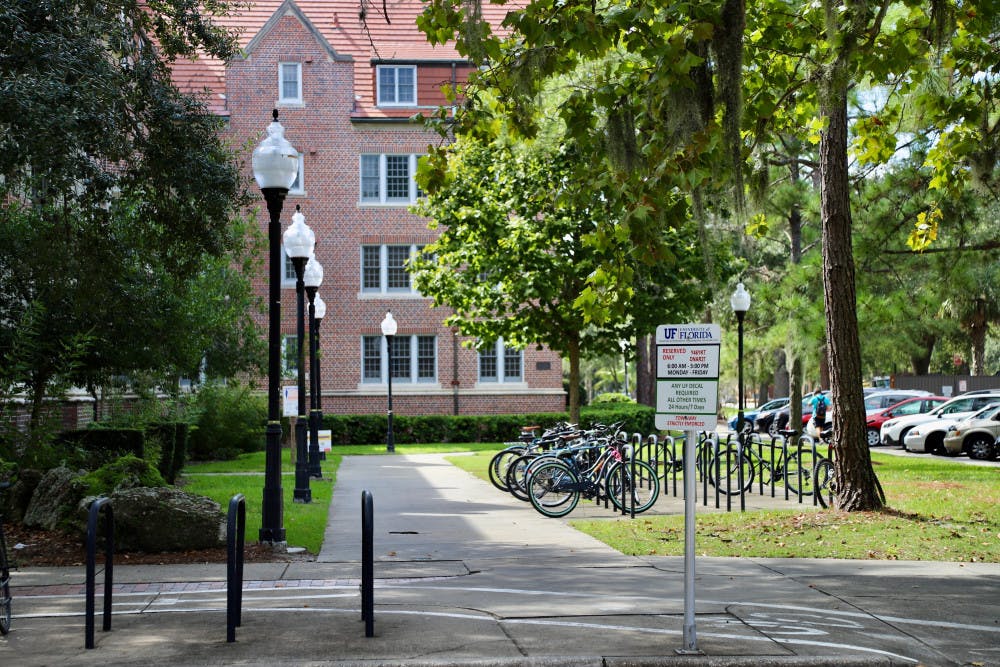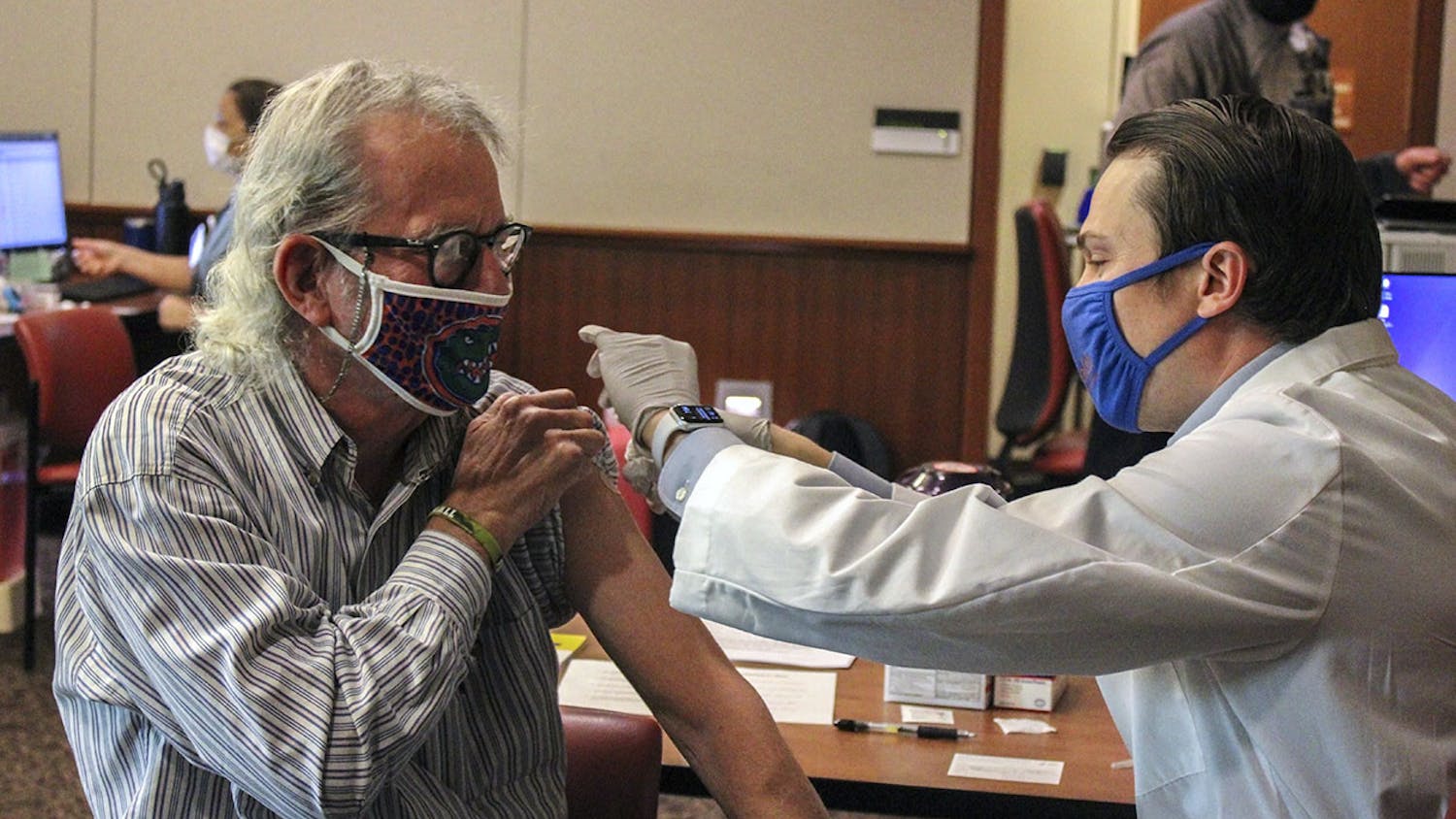Moving past the challenges of 2020, Gainesville, Alachua County and UF Student Government elected officials have a positive outlook on what city and student life will look like this year.
Here are some issues to be watching for in 2021:
City Commission
Handling mass COVID-19 vaccination in Alachua County is the city and county commissions’ New Year’s resolution.
Racial equity, living wage and youth development will also be discussed heavily in 2021. The city commission is working to improve the public transportation, housing and parks of Gainesville.
As of now, the commission has no concrete plans for a youth development policy. Commissioner David Arreola hopes to change that through commission workshops with local youth to help create economic and social opportunities for them.
These workshops would be aimed at youth employment and engagement while creating opportunities for Gainesville youth to get active in their community.
There are a number of agenda items from last year involving opportunities and equity for residents that the commission will continue working on, Arreola said. The Jan. 14 meeting will tackle setting a living wage requirement for employers.
Another ongoing priority of the commission is to address racial equity. In July, the commission began racial equity training for city employees. Areola said the commission plans to continue working on its commitment.
Elections for Gainesville City Commission At-Large and District 1 seats will be held March 16.
County Commission
Alachua County’s priorities for the new year are affordable housing, rental properties and homelessness, said County Commissioner Anna Prizzia. The commission will discuss these topics in its budget meetings.
The county emergency radio, which is in need of upgrades, is a hot-button issue. Deciding how the cost of these upgrades will be shared between the city and county is controversial, Prizzia said.
The City of Gainesville manages the radio, which is used by all of Alachua County. The county pays Gainesville a monthly rate to lease the emergency radio. Who will bear the brunt of upgrade costs is still up for debate, Prizzia said.
The commission approved an urban forest management plan Jan. 7 that had been in development since 2016. The plan pledges to evaluate the county’s urban forest every five years, setting new goals to improve its diversity, health and benefit to the community.
Prizzia said she’s focused on developing a program that incentivises residents to replace aging trees that pose a danger to homes during storms with new ones.
UF Student Body President
Student Body President Trevor Pope said he plans to maintain and prioritize his initial goals promised during his election in the Fall: build for the future, make UF more inclusive and improve the student experience.
“Everything we’ve done up to this point has been working towards those three major points,” he said. “To really just ensure that students are thriving, even as we live through this time of uncertainty and overcome so many barriers.”
Pope said he is proud of SG’s past projects, such as rent relief and free delivery from Bite Squad.
Following the campus shutdown in March, SG passed a rent relief bill allocating $500,000 of its $4 million reserve fund to help students struggling to pay rent. Out of about 2,000 UF students that applied, half were awarded $500.
Pope’s main project for Spring is Service Learning — an initiative to provide students with out-of-classroom experiences in every field by translating information taught in lecture halls into practical skills. With a budget of $150,000, the program will fund travel and supplies to prepare them for work, he said.
To get Service Learning ready, legislation must be written and passed, Pope said. The project will be ready for implementation to the next SG administration, and will go into effect over the 2021-2022 school year.
UF SG Senate
SG rules and procedures changed significantly in Fall, including shortening the amount of time students have to sign up for public comment during Senate meetings and allowing only senators to write and sponsor legislation.
However, Senate President Cooper Brown’s main goal for 2021 is to have more opportunities for Senators to meet their constituents and each other, as many of them have never stepped foot in the Senate chamber since the emergence of COVID-19, he wrote in an email.
“Class Cohorts” will separate senators by their year at UF and allow them to interact and work with other senators in the same class despite different party affiliations. Hopefully, this will lead to bipartisan legislation and projects, Brown wrote.
Senate meetings will remain virtual until March but will now feature guest appearances.
The first surprise guest will present Jan. 12 at 7 p.m. during Senate.
Inspire Party
One of the main topics in the Senate over Fall was a debate over online voting –– an effort rejected by the provost in September, but the Inspire Party is set on pushing for in Spring.
Students with health concerns who chose to take online classes from home are still part of the UF community and deserve the right to vote, even if not directly from campus, Minority Party Leader Brianne Seaberg said.
“We are really going to push for online voting so that we don’t disenfranchise any students,” Seaberg said.
Online voting has been subject to debate for years, but is particularly important during the COVID-19 pandemic to ensure the safety of students and maximum participation in elections, Seaberg said.
During Fall elections, SG provided early voting and absentee ballots as accommodations for students who could not go to the polls in person during the pandemic. However, some students did not receive their ballots in time for the election and student voter turnout decreased by a third compared to Fall 2019.
Inspire will push for more accountability from SG senators by demanding that contact information for all senators is available to students on the SG website, Seaberg said.
It also aims to make menstrual products available on campus, Student Health Care Center services more widely accessible and UF transportation services safer, Seaberg said.
Seaberg said Inspire will begin to write legislation on all the above projects early this semester, hoping to get them approved and implemented soon.
Gator Party
With a supermajority in the Senate, Gator party contested all efforts toward online voting made during Fall and approved amendments to its rules and procedures prohibiting non-SG affiliated students from writing and sponsoring legislation.
Its platform for Fall focused on providing more student tickets for home football games and auditing UF buildings for environmental sustainability. The party also aimed to provide students with COVID-19 supplies and a technology that tests drinks for date-rape drugs.
Gator Party’s platform also promised to provide legal advice and virtual counseling to international students.
Majority Party Leader Blake Robinson and Gator Party representative Gabriela Hernandez did not respond to emails from The Alligator over a span of four days.
SG will hold elections for Student Body President, Vice President and Treasurer, as well as 50 senators to represent colleges at UF on Feb. 23.
This article has been updated to reflect that the SG meeting has been changed from 7:30 p.m. to 7 p.m. on Jan. 12.
Contact Jack Prator and Carolina Ilvento at jprator@alligator.org and cilvento@alligator.org. Follow them on Twitter @jack_prator and @CarolinaIlvento.

Jack is a UF journalism sophomore covering the Gainesville City Commission. If he's not in a hammock at the plaza he is probably watching the Queen's Gambit for the fifth time.

Carolina is a second-year journalism major with a minor in sustainability. In the past, she covered stories and events for WUFT, and she is now reporting on Student Government for The Alligator. Carolina loves to do yoga and go to the beach whenever she isn't writing.




